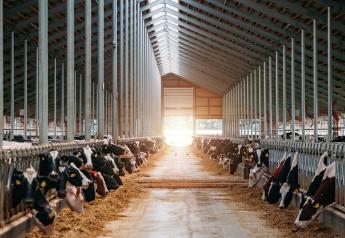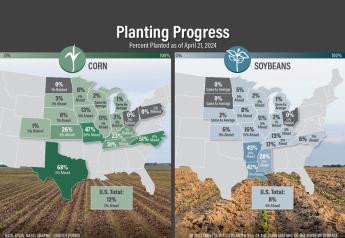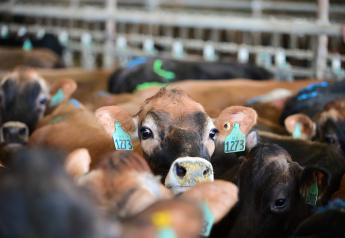Russia Bans Dairy Imports from Ukraine

Is the ban really based on "quality flaws" or politically motivated? How will world markets react to the move between these two major dairy players?
As the conflict between the two countries deepens, Russia has announced a ban on all dairy imports from Ukraine, the Associated Press has reported.
The Russian agency in charge of agricultural products said July 25 it would ban imports of Ukrainian dairy starting July 28 because of numerous quality flaws found in its products. Russia is a key market for Ukrainian dairy products.
Is the ban really based on quality flaws or is it politically motivated? Many believe it’s the latter.
"The move absolutely is politically motivated," says Andrew Novakovic, professor of agricultural economics at Cornell University.
"I would say it’s at least partly, if not all, politically motivated," an international market watcher, who didn’t want to be quoted by name, told me.
Russia and Ukraine are large players on the world dairy stage, Novakovic says. Russia is the fifth largest milk-producing country in the world, just ahead of but about equal to Germany. It’s the fourth largest by population. Ukraine is geographically much smaller than the top five, but it is often mentioned as an emerging market economy among rising milk producers, along with Brazil, Russia, China and India. Ukraine ranks about 14th and produces more milk than Australia.
"Although Russia is a big milk producer, it still hasn’t gotten over the mismanagement of the Soviet era and does exist in an agronomic climate that has more than usual challenges," says Novakovic. "As such, it often flip-flops between having enough milk to go around and being a big buyer of butter or other dairy products. Ukraine is logically a likely source as it is typically surplus."
Bill Schiek, economist with the Dairy Institute of California, wonders where Russia will go instead to import dairy products.
"For political reasons, I don’t see the U.S. picking up that business," Schiek says. "Since the European Union announced sanctions against Russia this morning, it’s hard to imagine the EU picking up that business either. Australia has also been vocal blaming the Russian government. So, maybe that leaves New Zealand or perhaps Argentina, but the Argentines have their own economic troubles that might prevent them from taking advantage. Maybe Poland or Belarus, but I’m just speculating."
Russia has traditionally been an important importer of butter.
"If they do go to Western suppliers to source product (directly or indirectly), that could tighten up the butter market outside the U.S., which has become comparatively inexpensive," says Schiek.
Novakovic doesn’t believe world markets will move much because of the ban.
"If Russia looks elsewhere for butter or other dairy products, that might lift prices a bit, but that also hinges on whether Ukraine can find outlets elsewhere," he says. "If it boils down to shifting customers, supply and demand doesn’t change much globally. I suspect the bigger challenge might be for Ukraine to keep up production, what with all the commotion and the general shaky nature of their infrastructure."
According to my international source, Russia’s ban isn’t a new issue.
"Russia has, on and off, banned dairy imports from various European countries for years, claiming plant sanitation issues," this source told me. "A couple months ago, Russia banned dairy and meat imports from Ireland, coincidentally right after Irish officials made public statements critical of Russia’s movement into Ukraine. Earlier this year it was Poland. Last year it was the Netherlands, Germany, Norway and Lithuania, among others. It’s also not confined to dairy; poultry has always been an issue and earlier today [July 28] there was a report of Russia potentially banning fruit from certain European countries."
Others reportedly agree. According to the AP report, Ukrainian Agriculture Minister Ihor Shvaika described the ban to Interfax Ukraine as politically motivated. Russia lambasted Ukraine's decision to sign a treaty with the EU in June.
An article in Russia’s ITAR/TASS news service takes a different angle. ITAR/TASS quoted a Russian official who said "the ban concerns, first and foremost, the imports of cheeses that might be hazardous since their production process includes palm oil of unknown quality and origin."
Read the ITAR/TASS story here.







